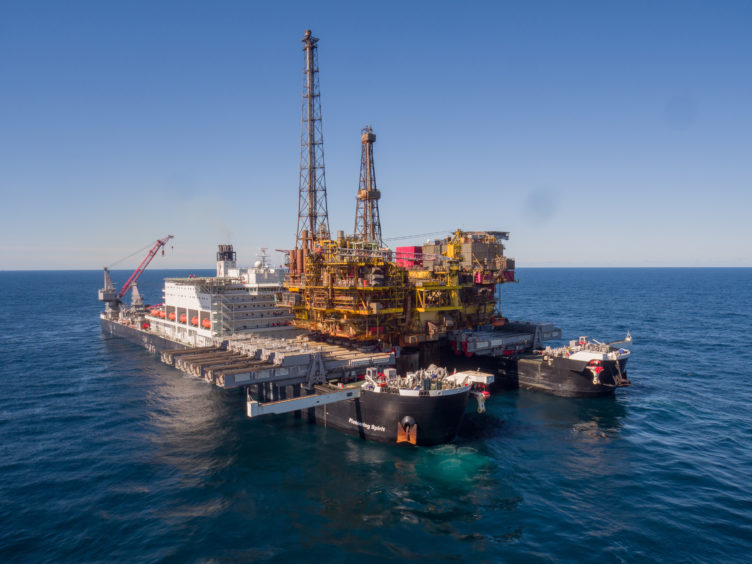
Shell received a refund from the UK Government of around $100 million in 2020, according to new figures.
In its Payments to Governments report, released on Wednesday, the energy giant revealed that the rebate was largely down to its decommissioning of the Brent field.
It makes it back to back years of refunds for Shell, which received $116.5m (£94.5m) from HM Revenue and Custom (HMRC) in 2019.
Under Westminster’s taxation system, UK operators can offset losses incurred by retiring oil and gas assets against taxes previously paid on them, backdated to 2002.
The process is intended to encourage future investment.
UK Government recently widened the scope of what could be considered decommissioning to include certain costs incurred prior to the approval of an abandonment programme.
Shell’s latest report, which is a legally required document outlining contributions made to governments in the 24 countries it has upstream operations, shows that, rather than paying taxes in the UK last year, the firm received a rebate of $106m (£76m) from HMRC.
The majority of that refund ($72m/£52m) relates to decommissioning costs incurred on Brent, which is currently in the process of being wound down.
The iconic North Sea field has contributed more than £20 billion in tax revenue to the UK Government’s coffers.
An ‘entity level payment’ of $18m (£13m) was made to the oil and gas giant, while other rebates, including $11m (£8m) for UK offshore operated projects, were also recorded.
Last year, Shell paid industry regulator the Oil and Gas Authority $7m (£5m), although details about what the costs relate to weren’t released.
A further $299,420 (£216,586) was paid to Crown Estate Scotland.
Elsewhere, the Norwegian state received $1.8bn (£1.3bn) from Shell, largely down to its sizeable production entitlement from the Ormen Lange gas field.
Globally, the Anglo Dutch supermajor paid governments a total $13bn (£9bn), with Nigeria emerging as the biggest beneficiary.
The company paid Nigeria $3.24bn in 2020, down from $5.63bn in 2019.
Shell paid the largest amount via a production entitlement to Nigerian National Petroleum Corp. (NNPC), of $2.28bn, down from $3.98bn in 2019.
Some NGOs have criticised the company for failing to provide granular detail on payments in Nigeria. Shell breaks it down into four units, two PSC areas and “west” and “central east” assets.
Payments on the latter two assets were for $929mn and $1.24bn. In footnotes, Shell explained that these figures included payments in kind, indicating prices of $40.6 per boe and $15.9 per boe for the west and central east units.
Meanwhile, Shell has also published its 2020 Sustainability Report and its Industry Association Climate Review.
The documents combine to demonstrate the firm’s efforts to remain at the “forefront of the drive for greater corporate transparency”, particularly around activities that are important to investors, governments and wider society.
The 24th edition of the Shell Sustainability Report outlines Shell’s strategy to become a net-zero emissions energy business by 2050, including its social, safety and environmental performance in 2020.
In his introduction to the report, Shell chief executive officer Ben van Beurden said: “In 2020, the COVID-19 pandemic changed the world and people’s lives in ways we could never have imagined. It was a tough year for everyone. It was a tough year for Shell, but also a year when we set a clear path for our future.
“We refreshed our business strategy and, when we announced it in February 2021, we called it Powering Progress. Powering Progress sets out our goals for powering lives and livelihoods, and respecting nature by protecting the environment. It lays out how we believe Shell can and must play a role as the world accelerates towards a future of zero- and lower-carbon energy.”
Updated at 1:54 pm with more detail on Nigeria.
